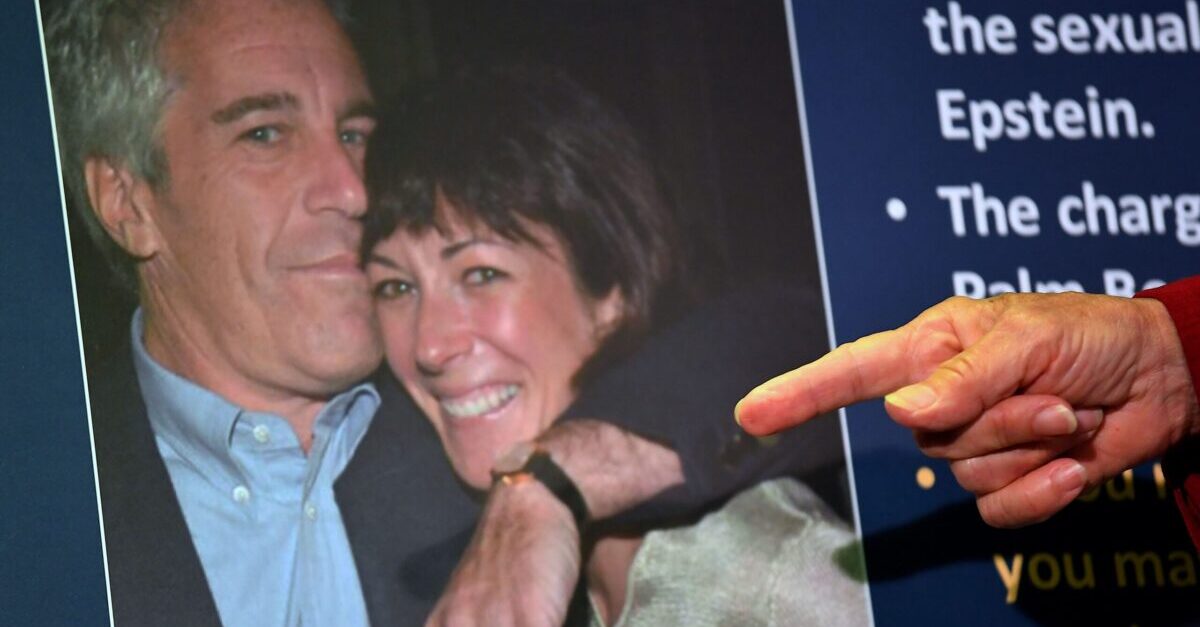
Audrey Strauss, the Acting U.S. Attorney for the Southern District of New York, announces charges against Ghislaine Maxwell during a July 2, 2020, press conference in New York City.
Ghislaine Maxwell’s latest effort to thwart her prosecution for allegedly enabling Jeffrey Epstein’s child sex-trafficking empire will test the outer limits of the adage: a deal’s a deal.
Signed in 2007, Epstein’s plea deal with the U.S. government allowing him to characterize his alleged child sex-trafficking empire as soliciting prostitution from a minor had an unusual clause that sparked a scandal after the Miami Herald called attention to it roughly a decade later.
The United States agreed “it will not institute any criminal charges against potential co-conspirators of Epstein,” in one of seven pages of clauses negotiated under the supervision of Florida’s then-top federal prosecutor Alex Acosta and approved by the senior Justice Department officials.
With Epstein now dead, Maxwell’s lawyers claim that the agreement from more than a decade ago is very much alive in one of several defense motions they filed late on Thursday night.
“‘The government cannot now ask this court to rewrite the agreement in a way more favorable to its current position, nor overlook key distinctions in the agreement, by claiming that they were drafting mistakes or omissions,” Maxwell’s attorney Mark S. Cohen, from the firm Cohen & Gresser, writes in a 38-page memorandum. “Nor may the government ask this court to construe ambiguities in its favor, in contravention of black-letter law that non-prosecution agreements must be construed strictly against the government.”
Jeffrey Epstein’s plea deal contained this unusual clause purporting to immunize his alleged co-conspirators from criminal prosecution.
Long anticipated but now-filed, Maxwell’s motion to dismiss her prosecution as a violation of that dusty agreement represents a reckoning over a plea agreement that has sparked as much scrutiny and outrage as any in U.S. criminal law.
The publication of the Herald‘s investigative series Perversion of Justice renewed interest in the deal at a time when its author, Acosta, had been serving as then-President Donald Trump’s secretary of labor and Epstein’s attorney Alan Dershowitz had been one of the White House’s most visible defenders. Acosta resigned after the paper’s exposé, and the Justice Department’s Office of Professional Responsibility would find that he exercised “poor judgment” and “agreed to several unusual and problematic terms” in the non-prosecution agreement.
Maxwell’s lawyers claim it is too late for buyer’s remorse.
“The government is bound by the agreement it negotiated and executed,” the defense brief states. “And the [non-prosecution agreement] is clear, explicit, and unambiguous.”
Epstein’s alleged victims have tried, and failed, to invalidate it.
In 2019, a federal judge in Florida found that prosecutors violated the Crime Victims’ Rights Act by negotiating the non-prosecution agreement without consulting the women Epstein allegedly abused when they were girls, but the women ultimately lost their effort to void the agreement. The document stood as a Chekhovian gun pointed at any case that U.S. prosecutors would bring against Epstein’s associates.
Federal prosecutors have anticipated this defense motion and believe that they can easily overcome it, claiming that the deal negotiated on behalf of the “United States” referred to the Southern District of Florida and not the Southern District of New York.
The government also argued that Maxwell, not being a party to the deal, cannot enforce its provisions.
In a six-count indictment, prosecutors claimed that Maxwell groomed minor girls for Epstein’s predation and lied about her role in his sex-trafficking Pyramid scheme under oath in civil litigation. The defense argued that the case is really about the government mollifying decades of public controversy in the case, up to allowing Epstein to turn up dead in his pre-trial lockup.
“One does not need to engage in complex analysis to understand what has happened here: the government has sought to substitute our client for Jeffrey Epstein, even if it means stretching—and ultimately exceeding—the bounds of the law,” the defense said.
Maxwell’s motion about the non-prosecution agreement was one of more than a dozen that her defense team filed in a blizzard late on Thursday night. Her lawyers also alleged that the allegations over “25-year-old conduct” are time-barred and that prosecutors obtained evidence for the perjury charge against her improperly. She hopes to dismiss all of the counts of her indictment and suppress broad swaths of the evidence against her for supposed constitutional and due-process infirmities.
The Southern District of New York declined to comment on the latest defense barrage.
Read Maxwell’s memo below:
[image via JOHANNES EISELE/AFP via Getty Images]